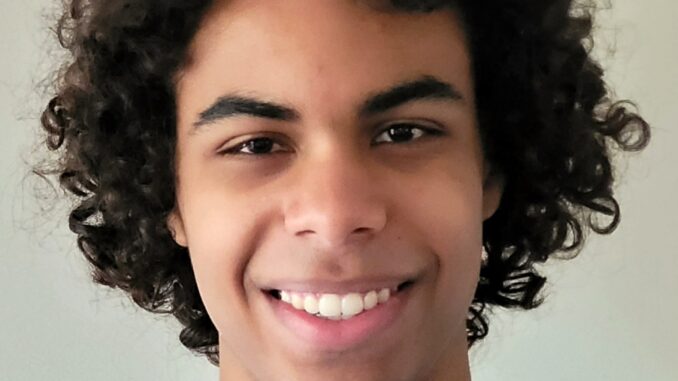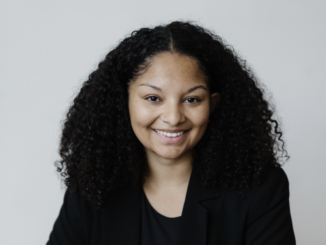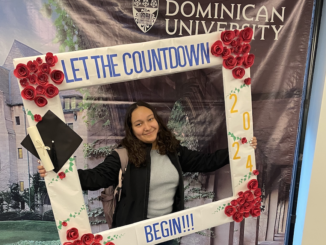
Matthew Desmond
Staff Writer
Climate change is a personal, local, national, and global issue. Dominican University has included lessons
about sustainability and climate change in their curriculum and sophomore seminar. Professor Mary Ellen McManus, an English Professor in the Rosary College of Liberal Arts and Sciences, said that
the school has had champions who have supported including environmental instruction. She points to the work of Father Richard Woods, who taught about the human connection to the environment long before people were discussing sustainability.
She also pointed out the creation of the community garden, the One Earth Film Fest, and the appointment of a sustainability coordinator. Different disciplines, as diverse as nursing and business, have recognized their role in education in this area.
Despite seeing individual support, McManus is worried about institutional support. She said that the last strategic plan, adopted five years ago, did not include any mention of sustainability, and the new plan may not either. She thinks that “If students, faculty, and staff push for it, that it will be included in the strategic plan. That sets the priority for the institution.”
McManus said that Dominican, as a Catholic institution, should see the emphasis that the Pope has placed on these issues. Francis’s 2015 encyclical tied climate change and environmental destruction to social inequities and social justice. The question is how Dominican will implement the Pope’s challenges.
One advantage that the study of sustainability has is that it is best understood across different disciplines. McManus said that chemistry, psychology, sociology, and even literature have different and important lessons to add to the field. One drawback to including it in so many different classes, that she pointed out, is that students can start to tune out the lesson. “If students get hit over the head with the same thing…they start to get numb.”
Another way to include sustainability education would be through the inclusion of a sustainability minor or concentration. McManus highlighted that this addition might “attract students,” especially since, in the future, there will be more jobs to help sustainability. However, she pointed out that adding a new major is difficult. “Dominican is actually in the process of trying to…reduce the number of majors… because then…majors compete for students and for resources.” Nevertheless, McManus said that student interest would exceed the difficulties.
Even without a sustainability minor or concentration, the sophomore seminar, Life in the Natural World, continues to impact students. McManus said that the course “…helps them to understand something that they’ve been learning about…” via many different sources. She also points out that faculty from different disciplines, including English, History, and Biology, teach the course. McManus also indicated that having professors from many areas teach the course is important, because it shows that climate change can and should be approached from many different perspectives.
Despite the evidence, there will still be climate change skeptics. McManus said that one
thing she has learned about confronting skeptics “…is that you have to listen to what they say.” For example, some might be against electric cars because of the mining of lithium. Some might object to
having windmills, as they kill birds. McManus said that “probably the biggest thing that people
say is that “It’s going to affect jobs.” or “It’s going to affect inflation….””She said the way to confront
this is to listen to opinions and try to find a solution. She also said that using the scientific method
can help people judge whether the science is correct.
The Inflation Reduction Act might create jobs in the green sector. McManus said that according to an article about the effects of this act, “the provisions of the Inflation Reduction Act are going to radiate throughout the economy.” The act will motivate people to adopt clean energy. However, there are people who are against it, not just those who do not believe in climate change, but also those who profit from fossil fuels. McManus, though, thinks that “mitigating the impacts of climate change does not necessarily need to reduce jobs. It can create jobs.”
The work of young people has been important to the success of sustainability. McManus specifically points out movements led by teenagers. She said their work is inspiring, because “they
know that this is a social justice issue.” They also see a tie between climate change and other social
justice issues, as they see the effect on their communities. She also mentions how people’s
views of indigenous communities have changed. She says “…there’s a greater recognition…that
indigenous communities are much better at stewarding the land…” She sees that action on
sustainability, climate change, and social justice are always linked.
mdesmond@my.dom.edu



